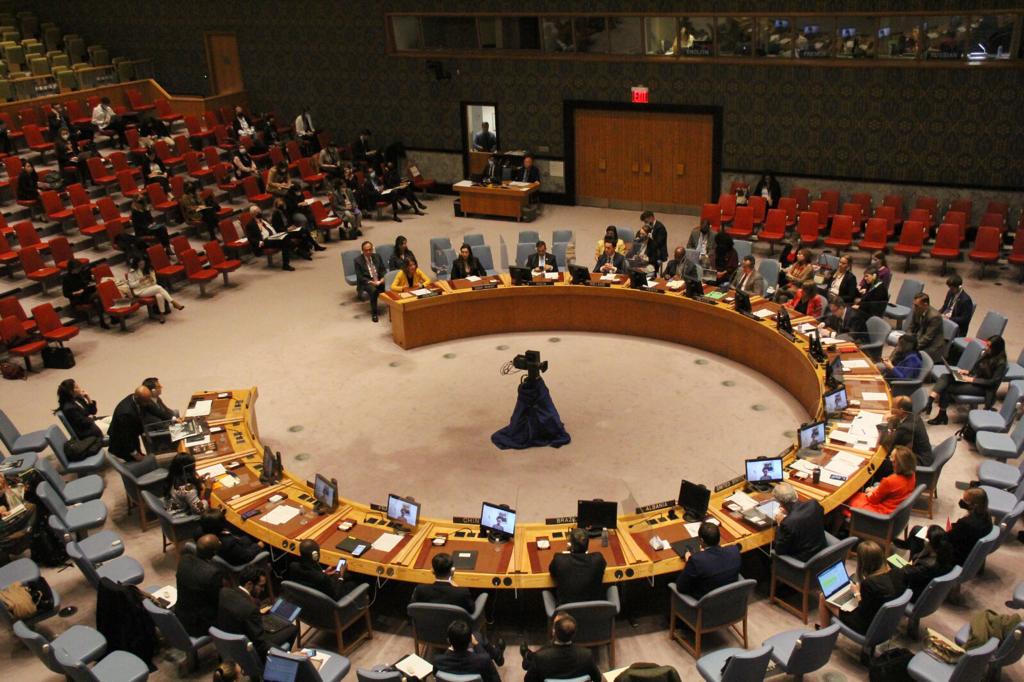
The UN Security Council recognized Colombia’s progress in its peace process following the presentation by Carlos Ruiz Massieu, the UN Secretary-General’s Special Representative and head of the UN Verification Mission in Colombia, last Tuesday, April 9. In a press statement issued by Vanessa Frazier, President of the Security Council and Permanent Representative of Malta to the Council, the UN body emphasized the need to fully implement the 2016 peace agreements signed between the Colombian government and the FARC guerrilla group.
The statement particularly highlighted the importance of agrarian reform and the so-called Ethnic Chapter, two areas tied to the social origins of the Colombian internal conflict. Established in 2017, the UN Verification Mission in Colombia aims to monitor the peace process implementation in the country, with its latest visit occurring in February.
The Council’s assessment
The UN Security Council provided its assessment of the key issues in the Colombian peace process. It praised Colombia’s ongoing peace dialogue with the ELN guerrilla and called for a resumption of the ceasefire between the Colombian State and the EMC guerrilla, which was recently broken following the group’s attack on an indigenous community.
It recognized the importance of the Special Jurisdiction for Peace, a transitional justice body created to adjudicate crimes committed during the Colombian internal conflict, as it is expected to issue its first sentences this year. Concerning the reintegration process for former combatants, the Security Council highlighted the need for security guarantees, possibly through a specific protection program, as many are victims of targeted assassinations.
Although the Security Council acknowledged Colombia’s recent efforts regarding agrarian reform, especially in addressing the needs of Afro-Colombian communities, Vanessa Frazier stated that further progress is needed to achieve the objectives set in the Final Agreement, including a national rural health plan.
The Council also emphasized the necessity for Colombia to publish its National Action Plan on women, peace, and security, in accordance with Security Council Resolution 1325 of 2000, which urges all Member States to enhance the participation of women in conflict resolution and to provide special measures to ensure their protection.
Colombia and the UN Security Council
Colombia is a founding member of the UN and has served several times on the UN Security Council as a non-permanent member from the Latin American and Caribbean Group during the periods of 1947-1948, 1953-1954, 1957-1958, 1969-1970, 1989-1990, and 2001-2002.
Colombia’s last tenure was from 2011-2012. During its term, Colombia notably chaired the Council’s committees on Haiti and the Al Qaeda Taliban Sanctions. Since then, Colombia has attempted to regain a non-permanent seat on the Council during the 2016 elections but was outvoted in favor of Bolivia.
According to official figures from the UN Peacekeeping, a multinational force whose actions are directly decided by the Security Council, Colombia is a modest contributor to specific peacekeeping missions. Specifically, Colombia contributes with two Experts on Mission to the UN Mission for the Referendum in Western Sahara (MINURSO) and to the UN Multidimensional Integrated Stabilization Mission in the Central African Republic (MINUSCA), respectively, as well as with one Staff Officer to the UN Interim Force in Lebanon (UNIFIL).
However, the most significant and historical participation of Colombia in a UN mission dates back to the Cold War. As part of the United Nations Command, a multinational force led by the United States and created to protect South Korea from the North Korean invasion, Colombia sent 5,100 soldiers, of whom 213 were killed and 448 wounded.
See all the latest news from Colombia and the world at ColombiaOne.com. Contact our newsroom to report an update or send your story, photos and videos. Follow Colombia One on Google News, Facebook, Instagram, and subscribe here to our newsletter.

